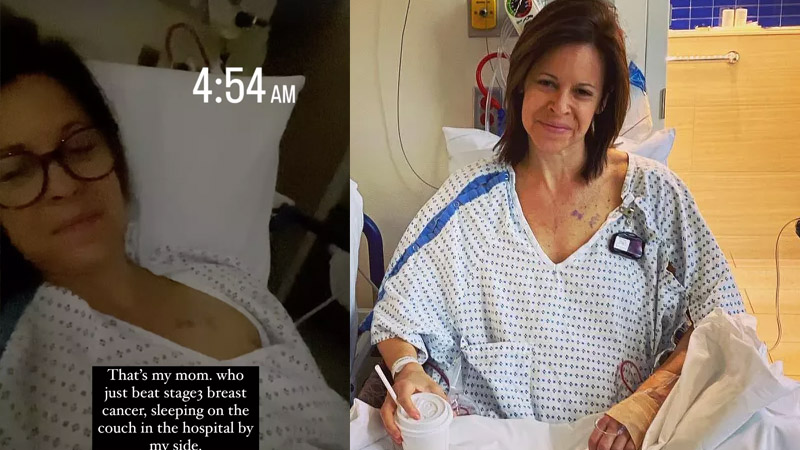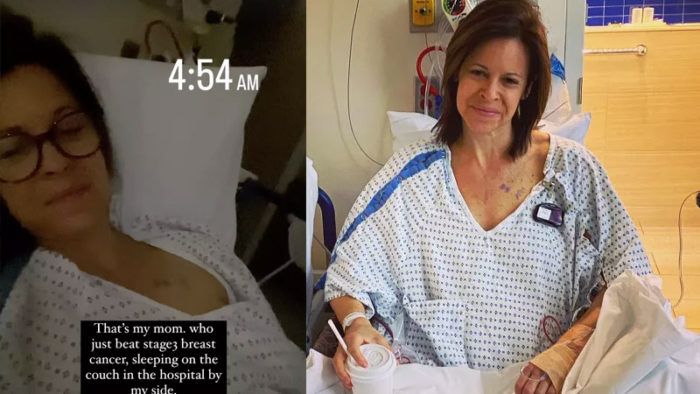Wolfe had the operation as her second therapy after a hysterectomy in March. “Behind me is a mastectomy. The only things left are rehabilitation and healing… the crucial component.
The most challenging, “Along with a photograph of her resting in a hospital bed, Wolfe wrote. The mother of two wrote: “My kids have been a source of support throughout the process.” “My little one remarked to me on Skype today, “You always say we can accomplish hard things, mama.
 We are now informing you of the same thing. You can do this. We cherish you.” Wolfe also hailed her mother, who she claimed “recently overcame” stage 3 breast cancer and was snoozing next to her when she was in the hospital, in her Instagram story.
We are now informing you of the same thing. You can do this. We cherish you.” Wolfe also hailed her mother, who she claimed “recently overcame” stage 3 breast cancer and was snoozing next to her when she was in the hospital, in her Instagram story.
She concluded by saying, “I’m a fortunate girl,” and posting a video of herself in the early morning. The former journalist for the Today program concluded her health update by saying she was “going home” and posting a picture of herself seated in a chair wearing casual clothing.
View this post on Instagram
She wrote, “It’s time to mend… everything.” When Wolfe discovered she had the gene in February, she decided to undergo the treatments, she said in an Instagram post. I just learned that I had the BRCA-1 breast cancer gene, which means that my chances of developing breast and ovarian cancer are… well… pretty high.
As a result, I have had little time to mull over my options,’ she said. Without many other alternatives, I faced my anxieties head-on, took a deep breath, and decided to have two quite significant procedures.
“I’ve just had my first hysterectomy. I’m frightened of needles, so it’s not enjoyable, easy, or fun at all, but I have to do it “explained Wolfe. “In two weeks, the larger second operation will take place. I would be happy to talk more with anybody going through a similar situation.”
BCRA1 and BCRA2 are genes that generate proteins that aid in the repair of damaged DNA, according to the National Cancer Institute. One of the two genes may be harmfully inherited, which increases a person’s chance of developing ovarian and breast cancer among other malignancies.
According to the institute’s website, those who inherit a damaging mutation in BRCA1 or BRCA2 are “also likely to acquire cancer at earlier ages than those who do not have such a variant.”







